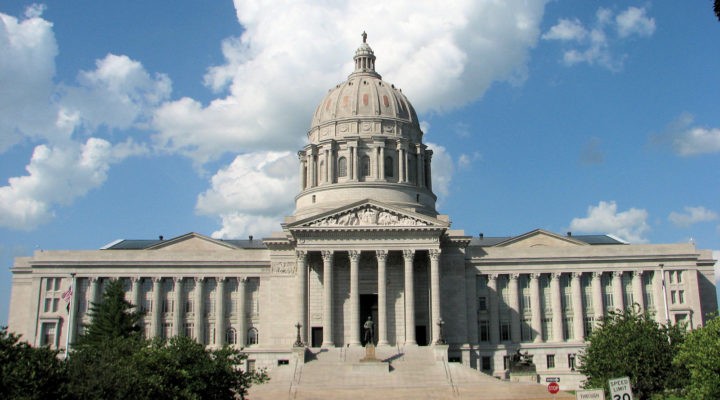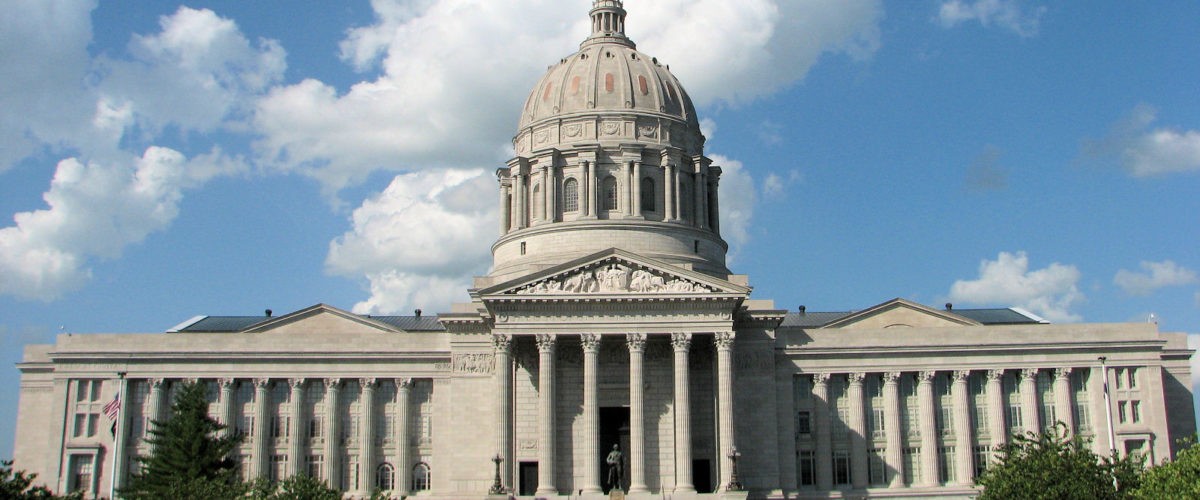A proposal to add religious liberty protections to the Missouri constitution engineered with leadership from the state’s Southern Baptists has passed the state Senate, despite a 39-hour filibuster by Democrats who say it discriminates against gays and lesbians.
Senate Republicans managed to end the longest consecutive filibuster in state history on the morning of March 9 with a parliamentary move called a vote on the “previous question.”
Senate Joint Resolution 39, spearheaded by a coalition initiated by the Missouri Baptist Convention, now goes to the Republican-led House, which will decide whether to put it on the ballot for voters.
Don Hinkle, editor of the state convention’s news journal, The Pathway, said Missouri Baptist Convention Executive Director John Yeats asked him to approach other faith leaders and legal experts around the state shortly after last year’s U.S. Supreme Court decision legalizing same-sex marriage in all 50 states.
Hammered out in six months of meetings, SJR 39, sponsored by Sen. Bob Onder (R-Wentzville), spells out clear protections for individuals with sincerely held religious beliefs against same-sex marriage.
Hinkle, who also has the state convention assignment for religious liberty and public policy concerns, summarized the bill’s impact in an editorial March 9.
“It prevents the state from penalizing clergy, churches, faith-based schools, universities and institutions like the Missouri Baptist Children’s Home who believe that marriage is between a man and a woman,” Hinkle said. “Churches do not have to allow marriage related activities on their property.”
“Schools, universities and children’s homes are protected in their hiring practices and operations and cannot be penalized by the state for opposing a homosexual lifestyle or same-sex marriage if it contradicts their faith,” he continued. “Likewise, it bars the state from penalizing business owners in the wedding industry who want to run their businesses according to their faith. Clergy cannot be forced to marry people of the same sex.”
Opponents say the rights of clergy and churches are already protected by the First Amendment, while other provisions would allow religious liberty to be used as an excuse to discriminate.
The Human Rights Campaign, America’s largest LGBT-rights organization, called it a “dangerous” measure that would allow “state-sanctioned discrimination against LGBT people and their families.”
“If passed at the ballot, SJR 39 would explicitly allow individuals and businesses to pick and choose which laws they will follow, and wield their religious beliefs as a sword of discrimination against LGBT people,” said an HRC blog.
“Taxpayer-funded adoption and foster care agencies could refuse to place children who are in desperate need of loving and caring homes with LGBT couples,” the HRC said. “State-funded homeless shelters could turn away LGBT couples and their families. Government employees could refuse to file tax forms for same-sex couples or provide state benefits. Businesses could turn away a same-sex couple shopping for wedding dresses.”
Protect Thy Neighbor, a project of Americans United for Separation of Church and State opposed to so-called efforts to abuse religious freedom, says SJR 39 “would enshrine discrimination in the Missouri Constitution.”
Maggie Garrett, AU’s legislative director, said she was “extremely disappointed” that the law passed the Senate but “inspired” and “given hope” by eight state Senators who stood in opposition for nearly 40 hours.
“We will continue to fight SJR 39 and to help protect the rights of everyone in Missouri,” Garrett said. “Religion is no excuse to discriminate.”
The St. Louis Regional Chamber of Commerce said the measure would hurt the economy, citing travel boycotts and canceled business expansions after a similar law passed last year in Indiana.
“While we understand the desire to protect clergy and religious institutions from having to perform ceremonies counter to their beliefs, expanding protections to individuals and private businesses that voluntarily enter the stream of public commerce sends the message to the rest of the country that Missouri condones discrimination,” the chamber said.
The Human Rights Campaign says the SJR 39 is one of nearly 200 anti-LGBT bills across 32 states that have been introduced this year.
Several Missouri Baptists testified in support of the bill during a Senate committee hearing on the resolution Feb. 23.
“Today, the frontline of religious liberty is not at the front door of the church — not yet anyway — but at the front door of the Christian business owner, the Christian college and university, and Christian social and benevolence agencies of all kinds,” David Krueger, pastor of First Baptist Church in Linn, Mo., and chair of the Missouri Baptist Convention’s Christian Life Commission, told the committee.
“Missouri needs a Religious Liberty Amendment that protects the religious liberty rights of its citizens,” Krueger said in comments quoted by The Pathway. “This amendment is not — let me repeat — this amendment is not a license to discriminate against protected classes of people. It is a shield, and not a sword.”



